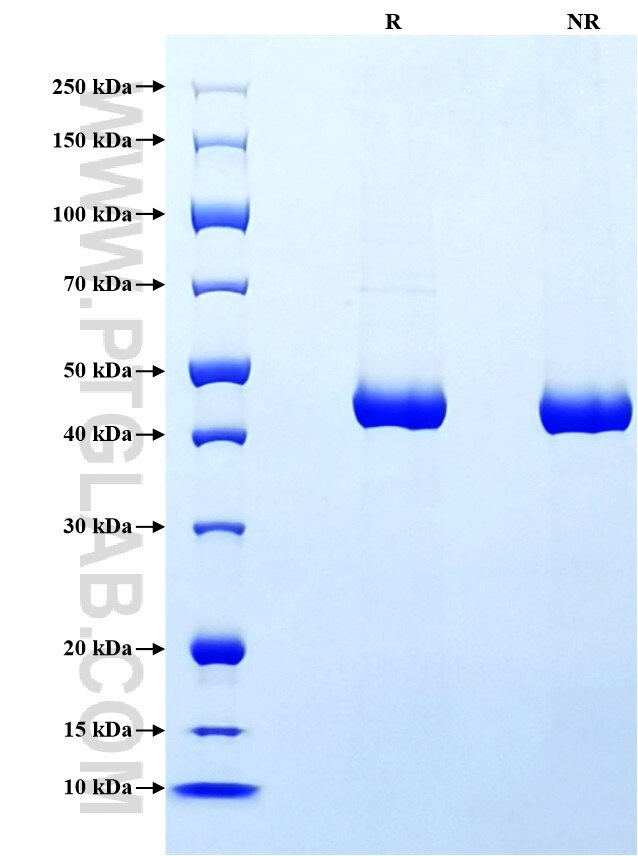Recombinant Mouse Serpin E1/PAI-1 protein (His Tag)
Species
Mouse
Purity
>90 %, SDS-PAGE
Tag
His Tag
Activity
not tested
Cat no : Eg1100
Validation Data Gallery
Product Information
| Purity | >90 %, SDS-PAGE |
| Endotoxin | <0.1 EU/μg protein, LAL method |
| Activity |
Not tested |
| Expression | HEK293-derived Mouse Serpin E1 protein Thr23-Pro402 (Accession# P22777) with a His tag at the C-terminus. |
| GeneID | 18787 |
| Accession | P22777 |
| PredictedSize | 44.0 kDa |
| SDS-PAGE | 42-48 kDa, reducing (R) conditions |
| Formulation | Lyophilized from 0.22 μm filtered solution in PBS, pH 7.4. Normally 5% trehalose and 5% mannitol are added as protectants before lyophilization. |
| Reconstitution | Briefly centrifuge the tube before opening. Reconstitute at 0.1-0.5 mg/mL in sterile water. |
| Storage Conditions |
It is recommended that the protein be aliquoted for optimal storage. Avoid repeated freeze-thaw cycles.
|
| Shipping | The product is shipped at ambient temperature. Upon receipt, store it immediately at the recommended temperature. |
Background
Serpin E1, also known as plasminogen activator inhibitor 1 (PAI-1), is a protein that belongs to the serpin family of serine protease inhibitors. It is primarily produced by endothelial cells and plays a crucial role in the regulation of fibrinolysis by inhibiting the activity of plasminogen activators, such as tissue plasminogen activator (tPA) and urokinase (uPA). Serpin E1 is involved in a variety of physiological and pathological processes, including fibrinolysis, fibrosis, angiogenesis, wound healing, and the invasion and metastasis of tumor cells.
References:
1. Catarinella G. et al. (2022) Cell Death Dis. 13(8):737. 2. Meltzer ME. et al. (2010) Blood. 116(1):113-21. 3. Janciauskiene S. et al. (2024) Biomed Pharmacother. 175:116618.

